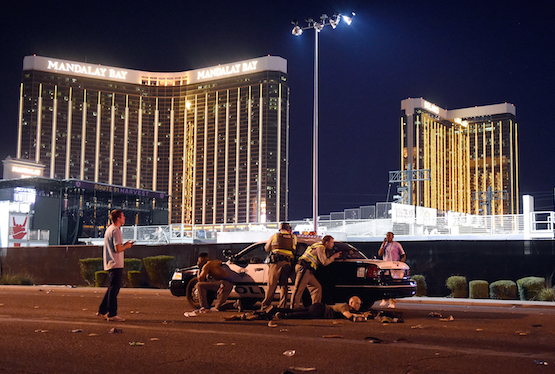The shooting at a music festival in Las Vegas that left 60 people dead, including the gunman perched in MGM Resorts International’s Mandalay Bay, occurred October 1, 2017; the first lawsuit was filed October 12. Since then, says Christian Ryan, the question he gets most frequently from hotels is “whether they have enough insurance to protect against third-party lawsuits following a potential active shooter incident on their property.” HOTELS’ INVESTMENT OUTLOOK spoke with Ryan, U.S. hospitality, sports and entertainment practice leader with Dallas-based insurance broker and risk management consultancy Marsh.
HOTELS’ INVESTMENT OUTLOOK: What have you heard from hospitality clients?
Christian Ryan: During recent policy renewals, our data and analytics show the vast majority of our hotel clients purchased more general liability limits than they have historically, with an average increase of 20% to 30% compared with the prior year. If a guest or other third party is injured or killed in a shooting on a hotel’s premises, a commercial general liability policy may provide coverage for medical care, bodily injury, property damage and defense of lawsuits alleging negligence.

HIO: Beyond buying more coverage, how can hotels protect themselves?
CR: Every hotel should establish a policy to reduce the risk of workplace violence and impacts from active shooter events. This policy should:
- Establish procedures through which employees can report violent or troubling behavior.
- Set criteria for escalating incidents to a pre-defined threat assessment or management team.
- Address additional security measures that may be needed to safeguard employees, guests and others.
- Reflect input from the hotel’s security, human resources and legal teams, and potentially law enforcement, along with feedback from workforces.
- Be reinforced through tabletop exercises and drills.
- Security, crisis communications, emergency response (including active shooter), humanitarian assistance and crisis management plans should align with a hotel’s workplace violence prevention plan. They also should be similarly updated and reinforced regularly.
HIO: Are new types of insurance being developed to cover such situations?
CR: Following an active shooter event, a hotel could face sizable property/casualty claims. Policies from workers’ comp, to general liability, to property and business interruption could be set in motion. If the shooting event is deemed an act of terrorism, claims could be excluded unless terrorism insurance is included within the coverages. Terrorism insurance is available in the U.S. as a backstop under the Terrorism Risk Insurance Program Reauthorization Act (TRIPRA) of 2015 and on a standalone basis.
Several criteria must be met for TRIPRA to come into play, including that insured losses must top US$5 million and that the event must be “certified” by the government as an act of terrorism, something that has yet to happen in the 16 years since the law was enacted.
Some insureds turn to standalone terrorism insurance, which does not require the government to certify a terrorism event before a claim can be paid. In recent years, such insurers have enhanced coverage to include: active shooter/active assailant situations and the resulting consequences that could include, for example, worker retraining and relocation, security costs, public relations, counseling and medical expenses; extra expense for evacuating people due to a threat; contingent interruption of operations; canceled reservations; and loss of attraction/revenue known as “non-physical damage business interruption.”
HIO: From a risk management perspective, what do you recommend?
CR: Hotels are reviewing policies and procedures and placing greater emphasis on training… We are advising our hotel clients to continuously review their policies and procedures. In hospitality, there’s a lot of turnover. So this training needs to be consistent and done on a frequent basis.
